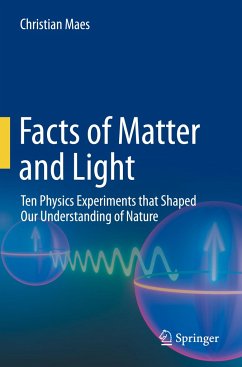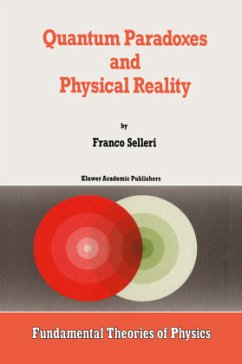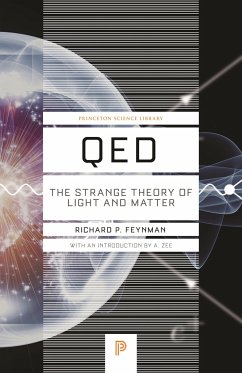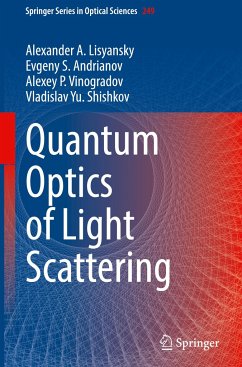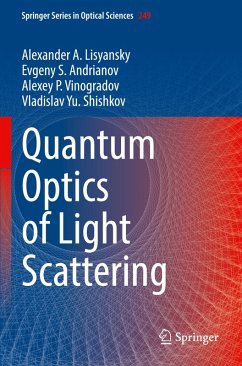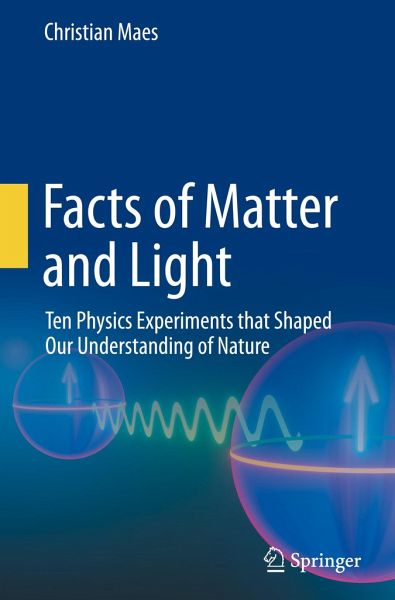
Facts of Matter and Light
Ten Physics Experiments that Shaped Our Understanding of Nature
Versandkostenfrei!
Versandfertig in 6-10 Tagen
57,99 €
inkl. MwSt.
Weitere Ausgaben:

PAYBACK Punkte
29 °P sammeln!
.The main aim of this book is to shine a spotlight on key experiments and their crucial importance for advancing our understanding of physics. Physics is an empirical science, and experiments have always been a driving force in the development of our understanding of nature. Facts matter. In that sense, the book attempts to be complementary to the many popularizations of theoretical physics, and to counterbalance the frequent emphasis there on more speculative ideas.Experimental physics is also an essential pillar in physics teaching, as well as helping broader audiences to better understand i...
.
The main aim of this book is to shine a spotlight on key experiments and their crucial importance for advancing our understanding of physics. Physics is an empirical science, and experiments have always been a driving force in the development of our understanding of nature. Facts matter. In that sense, the book attempts to be complementary to the many popularizations of theoretical physics, and to counterbalance the frequent emphasis there on more speculative ideas.
Experimental physics is also an essential pillar in physics teaching, as well as helping broader audiences to better understand important concepts, particularly in challenging fields such as relativity or quantum physics, where our common sense intuition often fails.
Readers are taken on an historical journey, starting with "Free Fall" and culminating in "Spooky Action at a Distance". En route they will encounter many important branches ofphysics, whose main ideas and theoretical description will be given a more empirical meaning. At the end, the reader is invited to reflect on what could be exciting and important directions for fundamental physics. All readers with an undergraduate degree in physical sciences or engineering will enjoy and learn much from this stimulating and original text.
The main aim of this book is to shine a spotlight on key experiments and their crucial importance for advancing our understanding of physics. Physics is an empirical science, and experiments have always been a driving force in the development of our understanding of nature. Facts matter. In that sense, the book attempts to be complementary to the many popularizations of theoretical physics, and to counterbalance the frequent emphasis there on more speculative ideas.
Experimental physics is also an essential pillar in physics teaching, as well as helping broader audiences to better understand important concepts, particularly in challenging fields such as relativity or quantum physics, where our common sense intuition often fails.
Readers are taken on an historical journey, starting with "Free Fall" and culminating in "Spooky Action at a Distance". En route they will encounter many important branches ofphysics, whose main ideas and theoretical description will be given a more empirical meaning. At the end, the reader is invited to reflect on what could be exciting and important directions for fundamental physics. All readers with an undergraduate degree in physical sciences or engineering will enjoy and learn much from this stimulating and original text.





